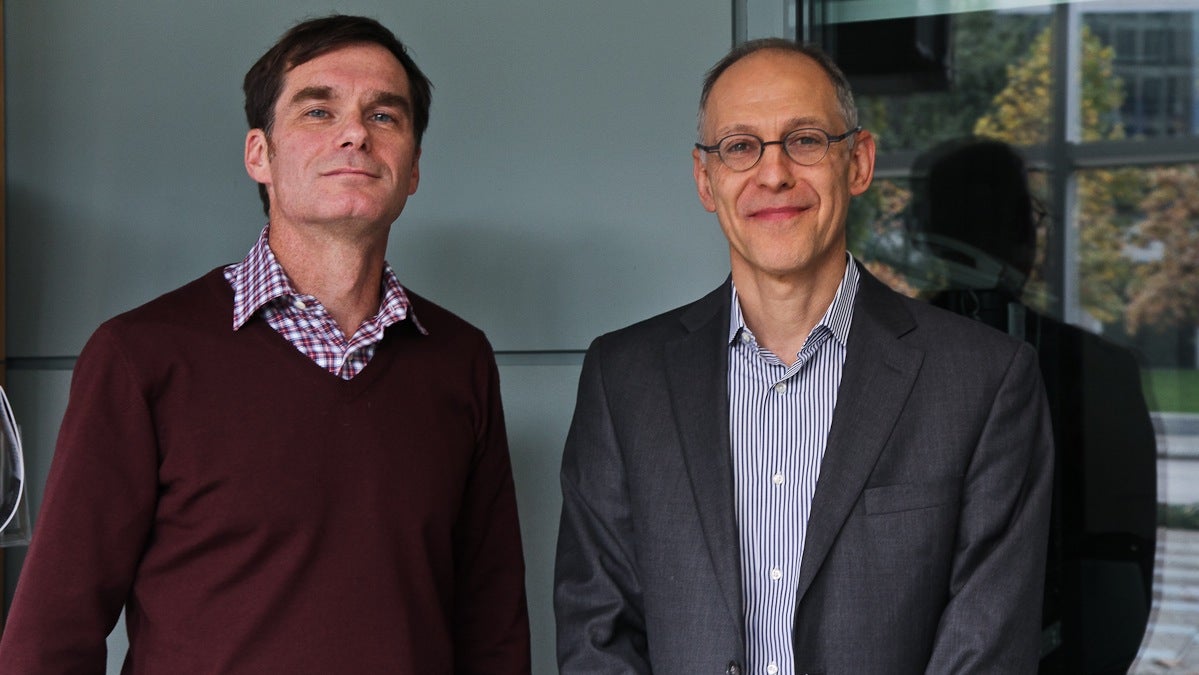How old is too old? Two ethicists debate quality of life as we age
Listen
Jason Karlawish (left)
How is this for a headline sure to catch your attention: “Why I hope to Die at 75.” It was the title of an opinion piece written earlier this year for The Atlantic by Zeke Emanuel, chair of the Department of Medical Ethics and Health Policy at the University of Pennsylvania. In it, Emanuel lays out the reasons why he thinks 75 is old enough. He’s not talking about ending his life at that age, but says he believes that’s the perfect age to go. Obviously, this article got a lot of response.
Unrelated, but around the same time, Jason Karlawish, a geriatrician, and professor of medical ethics and health policy at U Penn wrote a piece for the New York Times titled: “Too Young to Die, Too Old to Worry” which describes how singer Leonard Cohen said he would start up smoking again at age 80. Karlawish uses this as a way to discuss risk reduction versus enjoyment of life, and quality of life in old age.
Two interesting takes on the issue of aging, and what quality of life means – so we brought the two ethicists together for a discussion on this topic – which got quite heated at times.
Zeke Emanuel started things off. “I really was trying to provoke people into thinking about what they want their life story to be, suggesting that it isn’t quantity but rather that it is about a meaningful life. You can have that by 75, and don’t have to obsess over living more days.”
Karlawish said that he wants to open a cultural, rather than medical conversation about aging – which he says is far more than a number. “This is were we differ, I increasingly find chronological age a difficult metric, given the variability you see in older adults,” he explained. “Leonard Cohen stands as a good example, when he was 78 he would give two hour long concerts and skip off the stage.” Karlawish added that the now 80-year-old singer wants to return to touring.
Emanuel called this a “classic response” saying that these people are outliers, where most of us will have disability and perhaps even dementia at that age. “If you look at creativity, Leonard Cohen is definitely an outlier, we all slow down.”
Karlawish responded that “as people develop disabilities, they do adjust, regardless of their age, and so I’d be careful when we cite these stats, when you ask people about their quality of life they will tell you that it’s very good.”
Emanuel said he agreed, but felt that we accommodate, and lower our expectations. “We create a circle, and that circle gets ever smaller, so that we take meaning out of ever smaller things, we shouldn’t be so comfortable doing crossword puzzles and books on tape, even if we’re happy at the moment.”
Listen to their whole conversation above.
WHYY is your source for fact-based, in-depth journalism and information. As a nonprofit organization, we rely on financial support from readers like you. Please give today.




